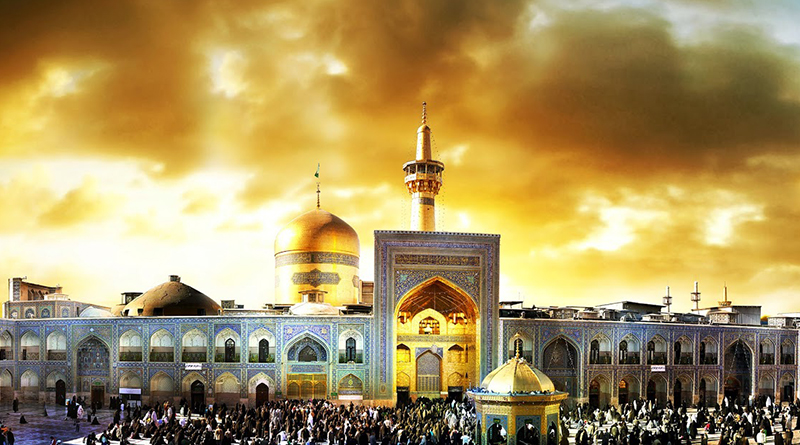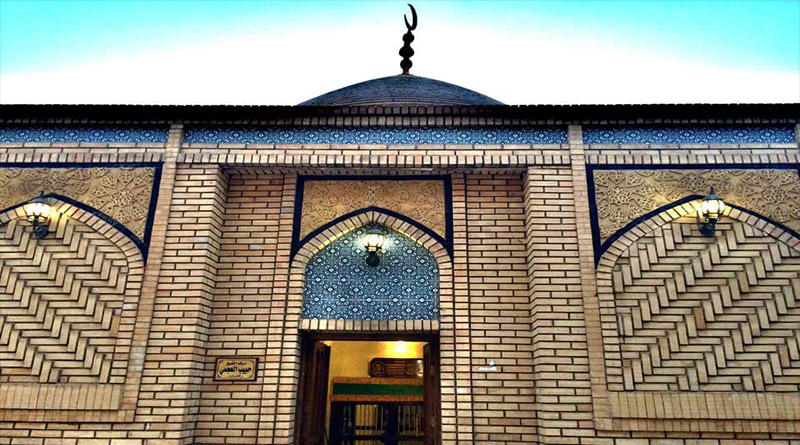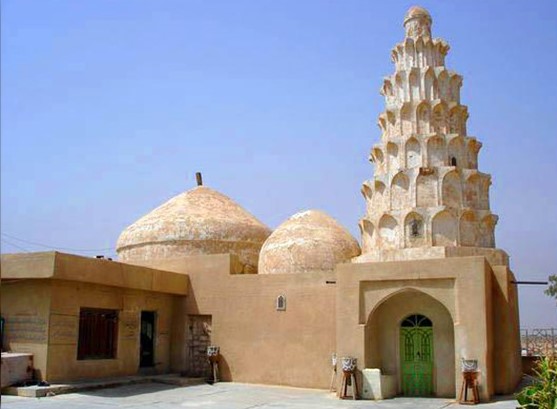Imam Ali ibn Musa al-Ridha (peace be upon him) is revered as the Master of the Imams, the Light of the Nation, and the Possessor of Dignity, Remembrance, Care, and Honor.
Name and Lineage
His full name is Ali ibn Musa ibn Jaʿfar ibn Muhammad ibn Ali ibn al-Husayn ibn Ali ibn Abi Talib (peace be upon them all).
Birth
He was born in the year 148 AH in the city of Medina.
Titles
He was honored with several titles, including:
- al-Ridha (The Contented)
- al-Ṣābir (The Patient)
- al-Raḍī (The Satisfied)
- al-Fāḍil (The Virtuous)
- al-Wafī (The Faithful)
Kunyah
His kunyah (honorific teknonym) was Abu al-Hasan.
Physical Description
He was of moderate stature, handsome, and had a dark complexion.
Contemporaries
One of his notable contemporaries was Sheikh Maʿrūf al-Karkhī.
Status and Miracles
Imam al-Ridha (peace be upon him) was the master of the Bani Hashim tribe and one of the greatest Imams and shining lights of the Ahl al-Bayt (the People of the Prophet’s Household). He was a source of knowledge, deep spiritual insight, and courage. He was well-known for his many miracles, including:
- He once mentioned that he had eaten grapes and pomegranates—and indeed he did.
- He warned a healthy man to prepare for the inevitable, and the man passed away three days later.
- A traveler once recounted:“I was with Abu al-Hasan Ali al-Ridha at Mina when Khalid ibn Yahya al-Barmaki passed by, covering his face with a dust veil and said: ‘Poor people, they do not know what will happen to them this year.’ What he foretold indeed came to pass.”
Imam al-Ridha then added:
“What amazed me even more is that Harun and I were like this,” (he joined his index and middle fingers).
The traveler remarked:
“By Allah, I did not understand the meaning of his words about Harun until after the death of al-Ridha and his burial beside him.”
Selected Sayings of Imam al-Ridha (Peace Be Upon Him)
On the Completeness of a Muslim’s Intellect:
“The intellect of a Muslim man is not complete until he possesses ten qualities:
- He is reliable in doing good and trustworthy in avoiding evil.
- He appreciates small favors from others but considers great favors from himself as little.
- He never tires of seeking help from others, nor does he grow weary of seeking knowledge throughout life.
- Poverty for the sake of Allah is dearer to him than wealth.
- Humiliation for Allah’s sake is dearer to him than honor in the eyes of his enemies.
- He prefers seclusion over fame.
- When asked about the tenth quality, he replied: ‘He does not see anyone without thinking, “He is better and more pious than I.” People are either better and more pious than oneself, or worse and inferior. When meeting someone inferior, he thinks their inner goodness may surpass his apparent goodness. When meeting someone better, he humbles himself to follow them. This humility purifies his goodness and allows him to lead the people of his time.’
On True Belief:
“A believer is not truly a believer until he has three qualities:
- A tradition from his Lord—keeping secrets.
- A tradition from his Prophet—consideration towards people.
- A tradition from his guardian—patience in both prosperity and adversity.”
On the Best Servants of Allah:
“Those who rejoice when they do good, repent when they do evil, are thankful when given, patient when tested, and forgiving when angry.”
On Reliance (Tawakkul):
“True reliance means fearing no one except Allah.”
Passing
Imam al-Ridha (peace be upon him) passed away on a Friday at the end of Ṣafar in the year 203 AH. However, according to al-Ṣaduq in al-ʿUyūn, the more accurate date of his death is nine days before the end of Ramadan in the same year. He died in the city of Tus, in the Khurasan region, in a village called Sanābād.
Shrine
He was buried in Tus, which is today known as Mashhad al-Muqaddasah (The Holy Shrine) in Iran’s Khurasan region.
Sources
- Ṭabaqāt al-Ṣūfiyya, p. 85
- Jāmiʿ Karāmāt al-Awliyāʾ, pp. 156–158
- I‘lām al-Warā bi A‘lam al-Hudā, pp. 2–91



